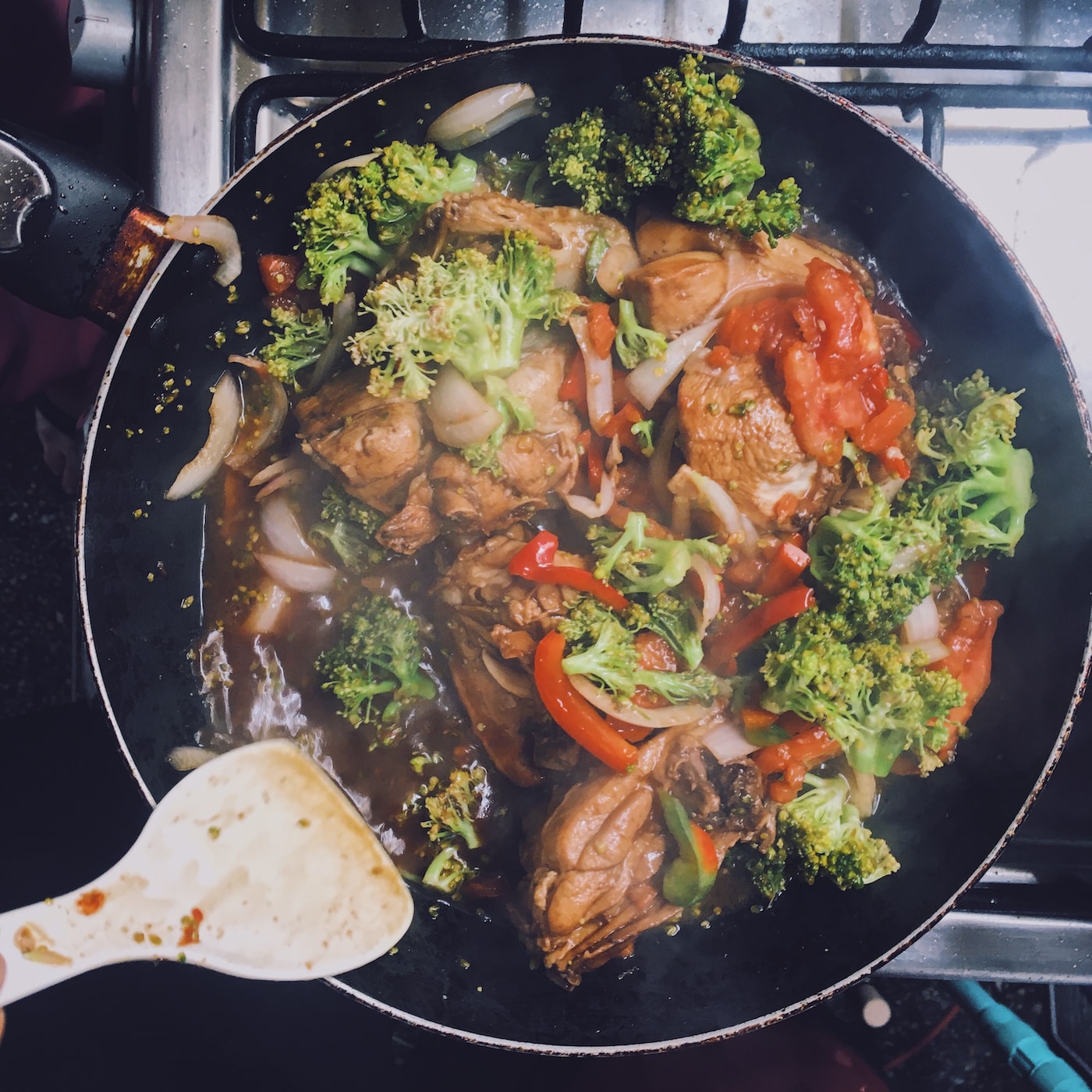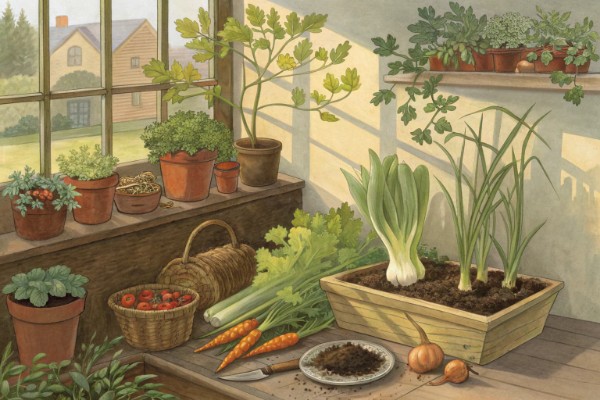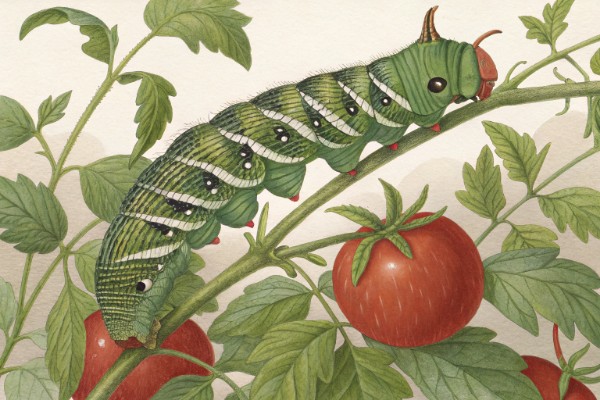Organic Liquid Fertilizer From Your Leftover Cooking Water

Organic Liquid Fertilizer
Transform excess cooking water into nutrient-rich organic liquid fertilizer. Pasta, vegetable, or rice water brims with starches and minerals plants devour eagerly. Let it cool, pour it straight around your plants, and watch them thrive—ditch waste, feed growth, and give your garden a sustainable boost.
Turning Kitchen Leftovers into Organic Liquid Fertilizer Gold
Last week, I found myself staring into a bubbling pot of leftover vegetable broth, wondering if pouring it down the drain was an unforgivable gardening sin. Years ago, a wise neighbor casually hinted: "Plants feast on what our kitchen discards."
She was right.
Why Kitchen Liquids Work Wonders
Plants, like us, thrive on varied diets. Cooking liquids from veggies and pasta overflow with nutrients like potassium, phosphorus, and nitrogen—exactly what a hungry plant craves.
Organic liquid fertilizer doesn't need to come packaged neatly from a store; your kitchen already simmers an abundance of it.
"Approximately 30% of household cooking liquids contain beneficial levels of nitrogen and minerals ideal for plant nourishment," according to gardening author James Wentz.
Which Liquids Make Great Organic Fertilizers?
- Vegetable Broth: Rich in vitamins and minerals due to boiled carrots, celery, and leafy greens.
- Pasta or Rice Water: The cloudy water from boiling spaghetti or basmati isn't waste at all—it's starch-packed plant food.
- Unsalted Potato Water: I once poured cooled potato water onto my tomato plants; by midsummer they'd exploded in growth, producing fruit quicker than ever.
What Should You Avoid?
Hold back on heavily salted or seasoned liquids. Excess sodium can harm delicate plant roots, throwing off their balance and stunting growth.
Allow boiled liquids to cool completely before offering them to your plants—scalded roots never forgave anyone.
Best Practices for Using Cooking Liquids
- Cool Completely: Room temperature or slightly warm (below 80°F / 27°C) ensures plant safety.
- Dilute Generously: Mix equal parts cooking liquid and water to avoid overwhelming your plants—the equivalent of slowing down at a buffet line.
- Apply Sparingly: Treat your plants to this nutrient surge once weekly; moderation ensures they feast without fatigue.
Personal Anecdote: My Basil's Revival
Last summer's basil plants stubbornly stalled—leaves yellowing, perfume muted. In desperation, I watered them with diluted pasta water, left from an overly ambitious dinner.
Within two weeks, those basil leaves revived, growing lush and aromatic again—the pesto was legendary.
"Plants hold ancient wisdom: they instinctively know value. Our role? Simply pour kindness from kitchen to soil," Terence McKenna once poetically implied.
Sustainability in Every Drop
Beyond nourishing plants, recycling kitchen liquids reduces waste, conserving precious water resources. It's mindful gardening at its simplest and most effective.
Next time you're draining noodles or potatoes, pause, smile, and remember: your garden eagerly awaits its nourishing bath.
Cheatsheet: Organic Plant Feed Using Kitchen Water
🌱 Benefits
- Reduces waste, boosts garden nutrients.
- Cooking water may provide up to 35% more minerals than tap water.
- Improves soil health, attracts beneficial microbes.
- Contributes to self-sufficiency and chemical-free gardening.
🛠️ Tools and Products You'll Need
- Glass jars or large container (at least 4L/1 gal)
- Sieve or cheesecloth
- Funnel
- Label and marker
🥦 Best Leftover Waters To Use
- Vegetable boiling/steaming water (potato, carrot, spinach)
- Egg boiling water (calcium boost)
- Rice water (mild nutrients + root stimulator)
❗ What To Avoid
- Salted, oily, or spiced water (may damage plants)
- Pasta water with gluten (may clog soil)
- Dairy or meat residue
🔪 Steps To Make & Use (10 min)
- Cool: Let cooking water cool to room temp (≤ 75°F / 24°C).
- Strain: Filter out food particles using a sieve.
- Label: Mark and store in a clean, closed container up to 2 days.
- Dilute: Mix 1:1 with freshwater for sensitive seedlings. For mature plants, use undiluted or with a 2:1 water:cooking water ratio.
- Feed: Water soil at plant root zone. Avoid leaves.
📆 Application Tips
- Use every 2–4 weeks.
- Store unused for max 48 hours, then discard in compost.
- Don’t substitute for compost or balanced slow-release feed.
🥕 Pro Tip
- Mixing different cooking waters increases mineral range for healthier crops.
Frequently Asked Questions on Using Organic Liquid Fertilizer from Cooking Liquids
Which cooking liquids can I safely use as organic liquid fertilizer?
You can safely use unsalted vegetable water, rice water, pasta water, and cooled herbal tea infusions like chamomile or nettle tea. Avoid liquids containing oils, salt, sugars, dairy, or meat remnants to prevent plant damage and pests.
Do I need to dilute cooking liquids before applying them to plants?
Yes, dilution helps protect your plants. Combine cooking liquids with clear water on a 1:1 ratio to avoid nutrient overload and prevent attracting insects or mildew buildup on soil surfaces.
How often should plants receive homemade organic liquid fertilizers?
Apply diluted cooking liquids approximately once every two weeks to provide a steady supply of nutrients without saturating the soil. Over-fertilization can stress plant roots and foliage.
Can hot cooking liquids damage plants?
Yes, always allow liquids to cool down completely to room temperature (about 68°F or 20°C) before application. Hot liquids burn plant roots and disturb healthy microbial activity in the soil.
Are there particular plants that respond especially well to diluted cooking liquid fertilizers?
Yes, vegetable gardens, herbs, houseplants, and flowering annuals grow vigorously with the mild nutrients supplied by diluted cooking liquids. Leafy greens such as spinach, kale, and lettuce absorb these organic solutions readily.
Is there a storage limit for organic liquid fertilizer made from cooking liquids?
To maintain nutrient quality and prevent bacterial growth, store diluted cooking liquids refrigerated for no more than 3–4 days. Always smell and observe unfamiliar changes in color or consistency before applying.
Turning leftover cooking water into organic liquid fertilizer just makes sense. Instead of pouring nutrients down the drain, you feed your soil—and your plants show you the difference. This simple act reclaims value from the everyday, boosting everything from your indoor veggies to your backyard tomatoes. You’re not just saving money; you’re closing the loop in your kitchen and garden. Organic liquid fertilizer from cooking water is gentle, effective, and keeps things honest—no synthetic shortcuts, just good stewardship. For those hungry to learn more about feeding their plants naturally, this guide to fertilizing plants has your back. Keep it simple, waste nothing, and let your garden do the talking.
Find out which plants will thrive in your garden!
Answer a few fun questions and get custom plant recommendations perfect for your space. Let’s grow something amazing together!

start your season


